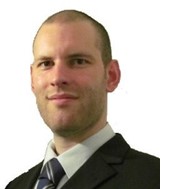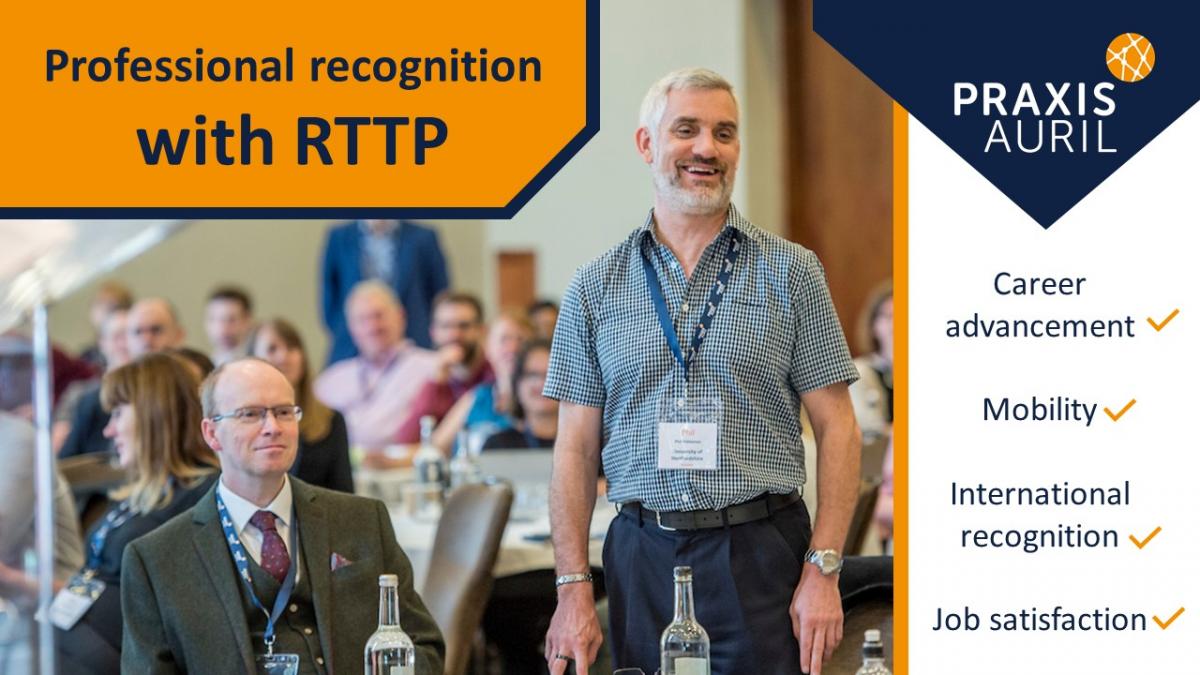PraxisAuril’s MarComms Manager Craig Smith caught up with Dr. Tom Withnell about his route to RTTP accreditation, and how it has lead to a feeling of greater trust and security in his work.
 Dr. Tom Withnell RTTP, University of Vienna
Dr. Tom Withnell RTTP, University of Vienna
Tom is an internationally experienced Technology Transfer and Project Management Professional with a background in Electrical Engineering and nuclear experience. In his current position at the University of Vienna, Tom promotes the transfer of University technologies, commercialisation of inventions with a goal of generating revenue for further research.
Q1: What influenced your decision to seek RTTP accreditation?
A: My primary drive was for professional recognition. In some institutions Knowledge Transfer is, sadly, not seen as playing a key role nor needing a highly skilled team to successfully operate. By having a team of RTTPs or Candidate RTTPs it actively demonstrates a drive to improve the status of the profession. For me, the fact that the accreditation requires a minimum level of experience is a plus as it reduces the available pool of applicants; RTTP is therefore somewhat rare which increases its value.
Q2: Did you plan your path to RTTP accreditation?
- If yes, can you detail the training, courses, mentorship and professional development opportunities you undertook to qualify?
- If no, can you detail your past professional experience which lead to your RTTP accreditation?
A: I collected the CE points through attending two training courses and three conferences hosted by multiple associations from the ATTP alliance. The annual conferences were
- May 2015. ASTP. Annual Conference, Istanbul
- May 2016. ASTP. Annual Conference, Copenhagen
- March 2017. AUTM. Annual Conference, Florida
The training courses were:
- Sept 2015. Praxis Unico. Research Contracts
- Jan 2016. ASTP. Software Challenges
I chose these courses based on gaps in knowledge both personal and within the KT Office. The Research Contracts course hosted by PraxisUnico (before the merger with Auril) provided a great insight into contracts. I am based in Austria, and the focus on British law has been of great help in understanding each sides’ limitations when we are involved in negotiations with UK institutions. The Software Challenges course was the first time it was hosted by ASTP, and was based heavily on the Praxis software course. Software is a rapidly growing area so this course came at an optimal time in my career development.
Q3: Part of the RTTP application is to detail the skills/knowledge you applied to a KE/TT project and how this project was possible because of your contributions. Can you give details of the project you used in your application? Or details of similar projects conducted before or after your accreditation?
A: My project involved a seemingly straightforward case of a company purchasing a unit of inventive IP from the university. This was made more interesting with payment being part financial and partly a discount on a new lab machine. The project involved working with the various stakeholders, internal (e.g. involved researchers, faculty Dean, university room management, legal team) and external (purchasing and R&D within the company). The negotiation phase was managed carefully, taking into account the past relationship with the company and to keep the door open for future collaborations. Austria has a legal requirement for inventor remuneration, so an administration fee was negotiated in to cover this.
Since I achieved my RTTP accreditation I have had a further IP transfer with the same company.
Q4: Since becoming RTTP accredited has anything changed in you personally or professionally?
A: Within the Tech Transfer field, gaining RTTP shows a level of experience, which on a personal level has led to colleagues congratulating me. I additionally congratulate other colleagues in the field who have achieved RTTP.
From a professional perspective, although the RTTP designation is not so well known outside of the field, mentioning that it is a professional qualification gives the clients I work with a greater feeling of trust and security in my work. As a large part of Knowledge Transfer is based on trust amongst stakeholders the RTTP designation is highly useful.
Q5: What advice would you give a fresh KE professional looking to become RTTP accredited?
A: In short, do it! Three years may seem like a long period of time to get the qualification, but this provides a greater value to the designation; it is not something which can be easily got. Choose courses that are of interest to you, and I would definitely recommend attendance at annual conferences; the chance to network with colleagues in the field provides an unparalleled insight into how other institutions operate.
